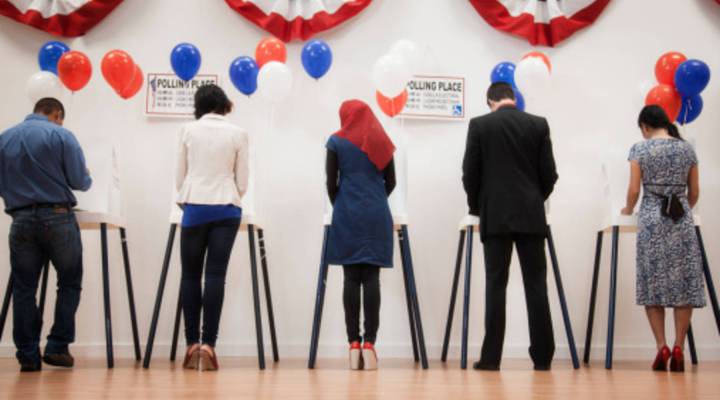
Six surprising measures on the ballot today
Share Now on:
Six surprising measures on the ballot today

With the strong possibility that Congress will remain gridlocked after the election, a look at the 162 ballot measures across the country offers some insight into the direction policy is heading in at the state level.
There are some high-profile measures that are on several state ballots. Many are looking for ways to increase revenue and one way to do that is by using so-called “sin taxes.” If the measures pass, several states can expect a flood of revenues from the legalization and regulation of marijuana. Similarly, a pack of cigarettes could go up by $1.75 in Colorado, for example, with revenues dedicated to funding health-related programs and training. Another way states can finance initiatives is by getting voters’ okay to use bonds. States like Rhode Island are asking voters to sign off on $227 million in low-interest government loans to fund things like port infrastructure and affordable housing.
But let’s here look at some of the lesser-known initiatives states are contemplating:
1) Lowering the minimum wage in South Dakota. While voters in four states — Arizona, Colorado, Maine and Washington — are considering proposals to raise the minimum wage, South Dakotans will vote on lowering the minimum wage for those under 18 years to $7.50 an hour. The idea is that this would boost youth employment. South Dakota is the only state proposing a lower minimum wage. A quarter of the state’s population is 18 or under.
2) Can the state of Wyoming invest in the stock market? Residents of Wyoming will be voting on whether to allow their state to invest in the stock market. Wyoming’s treasurer Mark Gordon said yields on bonds have sharply decreased in recent decades and that the initiative would be worth the risk. The legislature would decide what stocks to invest in. One way to judge how unusual this is, is to look at another ballot measure in Oregon. That Public University Investment Amendment explicitly restricts the government from investing, but seeks voters’ say on whether “donated or bequeathed” stocks can be used for higher education purposes.
3) Going from the bottom to the top (in corporate taxes) in Oregon. Oregonians will vote on whether to increase the state’s corporate tax rate on sales of more than $25 million, and impose a minimum tax of $30,001 plus 2.5 percent of sales above $25 million. Revenues from the tax increase would go to public education, health care and services for senior citizens. If the measure passes, Oregon will go from having one of the lowest rates, among states with taxes based on gross sales, to having the highest top rate.
4) Home owners’ solar rights. In Florida and Nevada, voters could end what advocates call “net metering.” The question is whether those who have solar panels on their roofs should be able to discount future bills by putting any of their excess energy back into the grid, or to sell it directly to others. Because of the way the Florida ballot is worded, according to Politifact, a “yes” vote will mean solar-powered homeowners won’t be allowed to do this.
5) Preventing animal cruelty by getting rid of confined spaces. Voters in Massachusetts will be deciding on whether to eliminate cruelty to farm animals by getting rid of confined spaces. According to WBUR, the American Society for the Prevention of Cruelty to Animals supports the measure, which they say has been driven by the market — companies like McDonald’s pledged to start sourcing only cage-free eggs and meat. But the Massachusetts Farm Bureau, which is 6,000 members strong, along with advocates concerned about food prices, are opposed.
6) Repealing the separation of church and state in Oklahoma. While other states like Colorado struggle with whether they should provide health care for all and how to get more revenue into their coffers, Oklahomans will be voting on whether to allow public monies to be used for religious purposes. The amendment would repeal an existing state law, that Rep. John Paul Jordan, R-Yukon, said lets special interest groups file lawsuits that “basically interrupt our way of life.” If the measure passes, the ACLU said it would turn to a federal court on separation of church and state grounds.
There’s a lot happening in the world. Through it all, Marketplace is here for you.
You rely on Marketplace to break down the world’s events and tell you how it affects you in a fact-based, approachable way. We rely on your financial support to keep making that possible.
Your donation today powers the independent journalism that you rely on. For just $5/month, you can help sustain Marketplace so we can keep reporting on the things that matter to you.


















